I always have a thing for Makha, bata, etc. be it Batabi lebu makha or kodbel makha or amra makha. I was in a morning school till class 10. Our school timing was limited until 11 a.m. starting from 6.30 a.m. This means I was at home by 12 noon. There was a small market in between my school and home. I used to pick things using my meager pocket money back then. I preferred to pick Batabi lebu, Kodbel ( Wood apple), Amra (Hog Plum), Kancha Aam (Green Mango) or any seasonal fruit. Next was to make my favorite makha. I had a Pathor Bati ( Stone Bowl) back then. My next venture was to the kitchen to manage some salt, chili, etc so that I could make my portion of makha.
The lonely afternoon was all about the seasonal makha along with "Onker Khata" (math copy) and K. C. Nag's book or Books from Rajani Gupta Library. I loved to seat alone on the stone staircase of our three-storey age-old building. There was no need for a fan and AC was out of the question back then. I remember reading Sei Shomoy as well as Prothom Protishruti seating on that staircase only. Needless to say with a bowl full of Makha. I don't remember.
Love for Makha, Bata, etc now!
The love is never-ending, however, relaxing afternoons are rare. At times not once in a month even. In my apartment, I do not have the privilege of seating on the staircase either. I make the delicacies now though. I often carry those to the office as a snack. Pasta enjoys her porion in the afternoon while she returns from school. Thanks to heredity she also likes seating somewhere and reading the books while having some kind of Makha.
I posted a picture of a bowl full of Batabi Lebu Makha through different social media platforms. There was no plan for a blog post, however, seeing people's reactions, I decided to write this post. Who would have thought the simple Batabi Lebu Makha can boost people to remember their childhood. Then I thought why not. The recipe may be easy but the emotions related to these need to be mentioned somewhere and that is what for my blog is.
Batabi Lebu Makha or Jambura Bhorta!
If you are confused about what Batabi Lebu is, let me tell you it is also known as Jambura! Pomelo is famous as Batabi Lebu in West Bengal. In Bangladesh, and amongst Bangalis from Tripura, it is famous as Jambura. While we refer to the Pomelo Salad as Batabi Lebu Makha, in Bangladesh they call it Jambura Bhorta or Jambura Makha. In Assam, they call it Rebab Tenga.
Now that I am done with the nomenclature, let me talk about the extremely simple recipe. All you need is to toss the flesh of fresh Pomelo with Sugar, Rock Salt, chopped Green Chilli, Cilantro and a dash of Mustard oil to make Batabi Lebu Makha. At times I add little black pepper as well. Cilantro aka Coriander leave is completely optional though makes the salad tastier.
Benefits of Pomelo aka Batabi Lebu aka Jambura!
Pomelo's scientific name is Citus Maxima and it is different from Grapefruit. The Pomelo salad aka Batabi Lebu Makha, needless to say, is tasty however, the fruit itself is very beneficial for our body. Here are the benefits of Batabilbu which we must know:
- Pomelo contains various vitamins, iron, citric acid and in general good for health.
- It helps in controlling diabetes.
- The regular consumption of Pomelo helps in having sufficient vitamin C.
- This fruit is full of Magnesium and helps in reducing muscle cramps.
- Pomelo helps in raising the level of HDL cholesterol and is good for the heart as well.
- This has anti-inflammatory properties and hence treats UTI naturally.
- In Bengal Pomelo is given when a person is having jaundice or during recovery.
- Pomelo is given after a fever as well.
- It helps in curing anemia as well.
Here's how I make Batabi Lebu Makha at Debjanir Rannaghar!
PrintRecipe Card
Batabi Lebu Makha | Jambura Bhorta | Pomelo Salad |
- Total Time: 10 mins
- Yield: 2 People
Description
Batabi lebu makha aka Jambura Bhorta aka Pomelo salad is a tangy fruit salad famous in West Bengal, Tripura, Assam, Bangladesh, etc and prepared during the season of Pomelo
Ingredients
- Pomelo/ Batabi Lebu/ Jambura: 1 (big and ripe)
- Green Chilli: 2
- Cilantro/ Coriander leaves: a few
- Sugar: 1 Tsp.
- Rock Salt: 1//4 Tsp.
- Black Pepper: ¼ Tsp. (crushed)
- Mustard Oil: A few drops
Instructions
- Remove the outer skin of Pomelo.
- Take the flesh out of the skin and deseed the pomelo as well to make the salad.
- In a bowl take the flesh along with sugar, rock salt, black pepper chopped green chili and chopped cilantro and also Mustard oil.
- Mix everything to make the mixture a bit mushy.
- Keep it as it is for 10 minutes to help in incorporating the flavors.
- Have the Jambura bhorta aka Batabi lebu makha fresh.
Notes
Increase the amount of Sugar if the pomelo is sour.
Increase or decrease chili based on need.
You can add other flavorings as well.
Cilantro is optional.
- Prep Time: 5 mins
- Cook Time: 5 mins
- Category: Salad
- Cuisine: Bengali
Nutrition
- Serving Size: 200g
- Calories: 139
- Sugar: 2.1g
- Sodium: 246mg
- Fat: 2.5g
- Saturated Fat: 0.3g
- Carbohydrates: 30g
- Fiber: 3.1g
- Protein: 2.4g
- Cholesterol: 0mg
Makha/ Bhate / Bhorta/ Salad Recipes from Debjanir Rannaghar!
- Nimki Makha (Also known as Bengali nimki salad)
- Nona Ilish Bhorta (Also known as nona ilish bhuna)
- Shutki Chingri Bhorta (also known as Dried Prawn Paste or Chingri Shutki Bhorta)
- Watermelon, Black Olive and Feta Cheese Salad (Also known as watermelon and feta cheese salad)
Have you tried the Batabi Lebu Makha recipe from Debjanir Rannaghar!
Do let me know how it came out. Also, I would love to see a picture of the same which you can share here on dolonchttrj@gmail.com. Meanwhile, on Instagram, you can use my hashtag #debjanirrannaghar and in addition, you can tag me at @foodofdebjani.

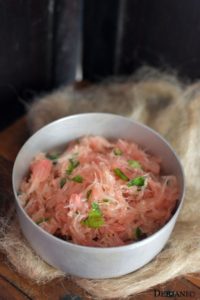
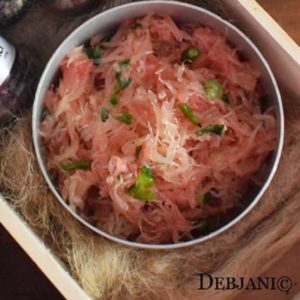
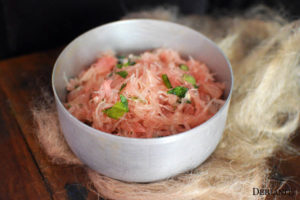


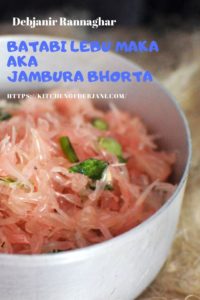
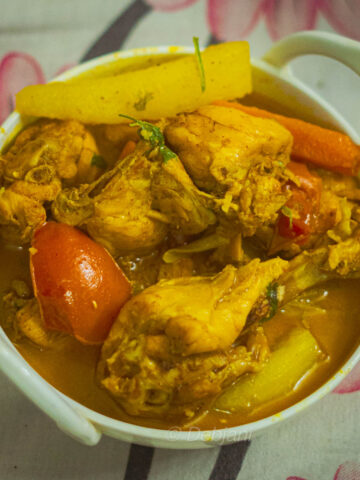
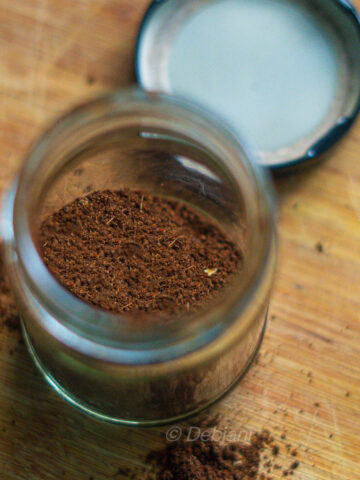
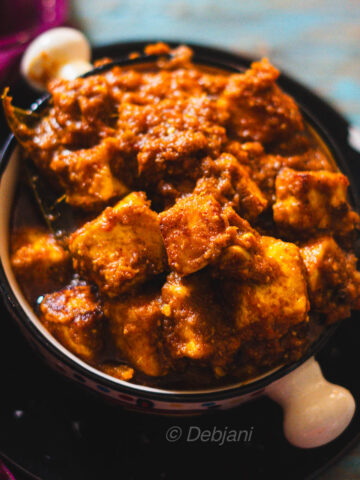
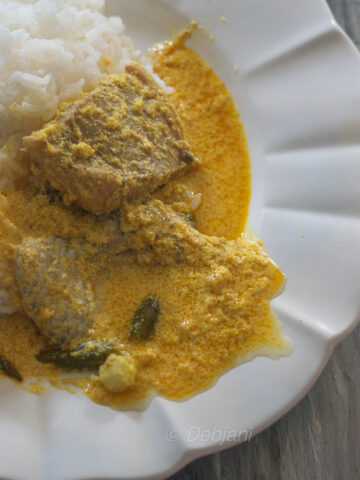
Leave a Reply